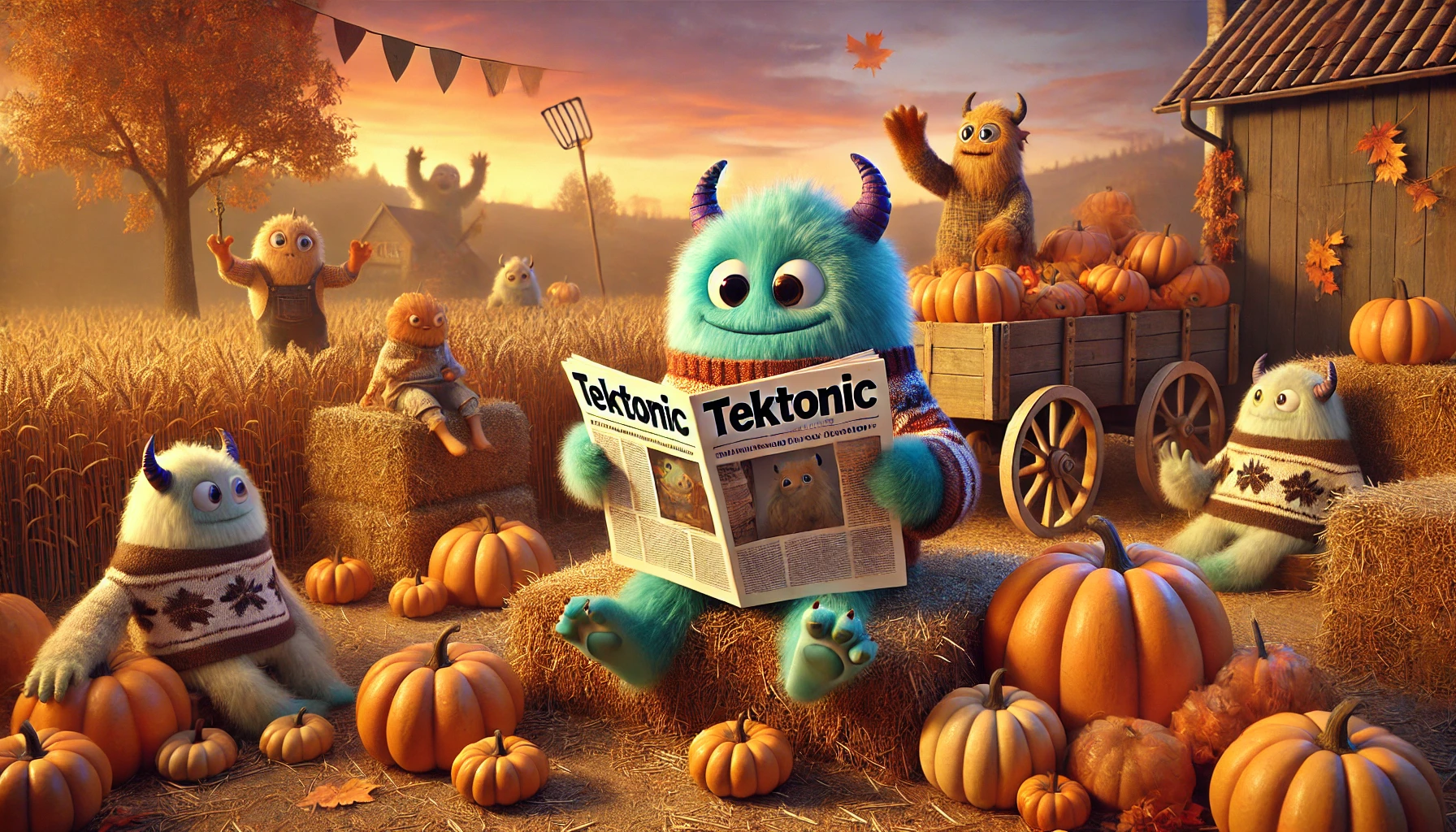Welcome to this week’s edition of TekTonic. While we started the week with rumors of a possible release of OpenAI’s “o1” model, we ended with the reveal of Elon’s autonomous taxi service. The week’s biggest story is probably the news that AI researcher Geoffrey Hinton won the Nobel Prize in Physics and AI researcher Demis Hassabis won the Nobel Prize for Chemistry. This news has people speculating about whether the Nobel prize will be awarded to AI in a few years.
In other news, OpenAI, according to a report by SF Gate, is reportedly set to incur losses exceeding $44 billion before achieving profitability by 2029, according to a report by SF Gate. This staggering financial projection underscores the immense investments needed to advance AI. In a strategic move, Sam Altman’s OpenAI is reportedly pursuing a switch to a for-profit structure to safeguard against potential hostile takeovers.
Adding to the competitive landscape, a recent Accenture research reveals that companies leveraging AI-led processes consistently outperform their peers.
Elon Musk’s xAI has expanded its Colossus supercomputer, now boasting 200,000 Nvidia GPUs. This colossal machine is set to accelerate X and Tesla’s advancements in artificial intelligence.
In a landmark achievement, a trio of protein pioneers have been awarded the Nobel Prize in Chemistry for using AI to decode and design protein structures. Their work leverages Google’s AI research subsidiary and holds immense promise for drug and vaccine development, potentially transforming medical science.
On the hardware front, rumors suggest the GeForce RTX 5070 graphics card will be released in January, promising enhanced performance for gaming and AI applications. Additionally, MediaTek has launched its flagship Dimensity 9400 chipset, optimized for AI applications and gaming, highlighting the industry’s focus on integrating AI capabilities directly into hardware.
The regulatory landscape is witnessing significant shifts as a US judge has mandated Google to open its app store to competitors. In another development, the U.S. is contemplating splitting up Google’s business, a move that has met strong resistance from the tech giant. An analyst predicts that splitting key assets like Chrome or Android would be detrimental to Google’s operations, potentially disrupting the vast ecosystem they have built over the years.
Meanwhile, the White House has issued new guidelines for federal agencies on AI procurement to ensure AI technologies’ ethical and practical use within government operations. Adding to the regulatory discourse, Google has introduced “Checks by Google,” an AI-powered compliance platform designed to ensure that applications and code adhere to regulatory standards. Furthermore, companies are slowing their European AI launches, citing the stringent European Union’s Digital Markets Act. These regulations are compelling major tech firms to postpone AI-powered feature rollouts, primarily due to concerns over user privacy and data security.
An Association of College and University Educators (ACUE) study reveals that many educators feel ill-equipped to integrate AI into their classrooms. Adding to workforce concerns, a new report shows that half of Generation Z employees contemplate leaving their jobs without generative AI training. The AI revolution is also poised to significantly impact non-union jobs, as discussed in an article by Time.
In a groundbreaking advancement, researchers have developed the first semi-human robot inspired by origami, marking a significant leap in medical robotics. This innovation promises to revolutionize surgical procedures by offering unparalleled precision and flexibility, potentially transforming patient care over the next century. Additionally, a study published by Azorobotics suggests that robots may soon possess the ability to “think” without relying on electricity. This development could lead to more autonomous and space-efficient robotic “brains,” enhancing their operational capabilities and applications across various industries.
TikTok has laid off hundreds of employees as it shifts towards AI-driven content moderation. This strategic move aims to streamline operations and leverage AI’s efficiency in managing vast user-generated content. In a collaborative effort, Hearst Corp. has partnered with OpenAI to license its extensive U.S. newspaper and magazine content. This partnership will enhance products like ChatGPT, providing users with more accurate and comprehensive information sources.
A South Carolina Public Radio study indicates that Americans are adopting AI at rates surpassing those of personal computers and the internet.
Flux 1.1 Pro, launched by Black Forest Labs, is touted as the best AI image generator available, surpassing competitors like Ideogram and MidJourney in both speed and quality. This tool will become a favorite among creative professionals seeking efficient and high-quality image-generation solutions.
Microsoft is expanding its AI capabilities to foster a healthier future, as detailed in their latest announcement.
In biotech, an immunoglobulin developer is leveraging AI to enhance manufacturing efficiency. By integrating generative AI and natural language processing, the company aims to optimize its processes, ensuring higher quality and faster production times.
However, using public AI chatbots like ChatGPT in clinical decision-making raises safety concerns. According to a report by Fierce Healthcare, some doctors are increasingly relying on AI tools for patient care, prompting discussions about the reliability and ethical implications of such practices.
The AI personas startup Anam.ai has successfully raised $2.3 million in funding. This capital injection will support the development of AI-driven customer service representatives and learning tutors, positioning Anam.ai as a critical player in AI-driven customer engagement.
Meanwhile, Relyance has secured $32 million to aid companies in complying with evolving data regulations. This funding will enable Relyance to expand its suite of tools to ensure that businesses adhere to global data privacy and security standards.
The Arc Browser has announced support for Windows on ARM, allowing users to download and install the browser on ARM-based Windows devices. This expansion broadens Arc’s user base and enhances its accessibility across diverse hardware platforms.
In a significant development for cross-platform users, the beloved minimalist web browser for iPhone is now available on Galaxy devices, as reported by SamMobile. This move facilitates a unified browsing experience for users across different smartphone ecosystems.
Wondercraft has launched Director Mode, an innovative feature that gives content creators precise control over AI-generated voices. This tool enhances the expressiveness and authenticity of AI voices, making them more suitable for diverse media applications.
Hugging Face has released Gradio 5, a new version simplifying AI development. This update introduces user-friendly features that streamline the creation and deployment of AI models. In a protective measure for creators, Adobe introduced a new tool to safeguard artists’ work from unauthorized AI usage.
That is it. Stay tuned for more news next week. I APPRECIATE ALL THE READERS. Help spread the word. I put these newsletters together so productive humans like you can stay on top of the latest AI stories shaping our world.
If you like these weekly tech news reports, subscribe to get notified of new editions and updates. For daily updates, check out our news page. For a more in-depth analysis of the week’s news, sign up for our free weekly newsletter to the right of the daily news, or follow me on Twitter or YouTube.



